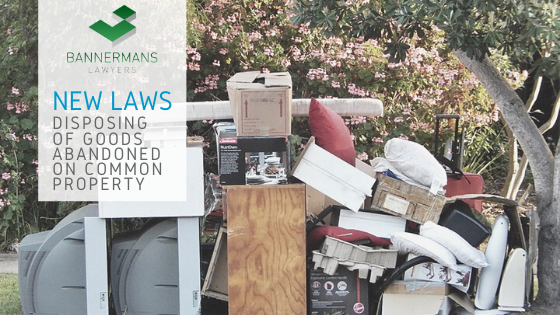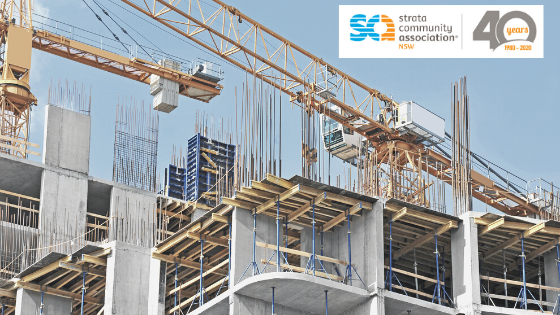
The Electronic Transactions Amendment (COVID-19 Witnessing of Documents) Regulation 2020 (NSW) (The Regulation) is another government initiative in response to COVID-19. The Regulation officially came into force on 22 April 2020 and aims to provide clarity on how some documents can be witnessed by an eligible witness via audio visual link.
One of the most critical aspects of the Regulation is that it does away with the requirement for a witness to be physically present to witness the execution of documents.
What does audio visual link mean?
Audio visual link means any technology that enables audio and visual communication between two persons who are not physically present in the same room. This usually consists of the classic video conferencing platforms such as Zoom, WhatsApp, Skype and FaceTime.
What documents can be witnessed by audio visual link?
The Electronic Transactions Amendment (COVID-19 Witnessing of Documents) Regulation 2020 makes the following changes:
- Documents that require a witness may be witnessed by audio visual link (AVL)
- Tasks in relation to witnessing a document may be performed by AVL
The below documents can now be witnessed through an audio-visual platform:
- a will;
- a Power of Attorney or Enduring Power of Attorney;
- an Appointment of Enduring Guardian;
- a deed or agreement;
- an affidavit (including any annexure or exhibit to an affidavit) except for the purposes of divorce; and
- a statutory declaration.
So, what is actually meant by witnessing documents being signed by AVL?
Under the new regulation, a witness must see a person signing the document in real time to confirm the signature is legitimate, which they can now do by viewing the act of signing by one of the many face to face video conferencing methods.
The witness can then sign the document, or a copy of the document, to confirm they witnessed the signature.
This could be done on a hard copy that is scanned and sent to the witness or on an identical counterpart of the document that the signatory signs. The witness must be reasonably satisfied that the document they sign is the same document, or a copy of the document signed by the signatory. Also, the witness must endorse the document with a statement that specifies the method used to witness the signature and that it was witnessed in accordance with the new regulation.
Written oaths, declarations or affidavits required for a purpose specified in section 26 of the Oaths Act 1900 may be taken or made before an Australian legal practitioner.
What is meant by this amendment is that a New South Wales Legal Practitioner will not be the only legal practitioner that can witness an Oath, Declaration or Affidavit in New South Wales, any licensed Australian Legal Practitioner will be accepted.
Statutory declarations may be made before the Commonwealth’s expanded definition of whom a statutory declaration under the Statutory Declarations Act 1959 (Cth) may be made. This list includes:
- architect
- chiropractor
- dentist
- financial advisor or planner
- legal practitioner, with or without a practicing certificate
- medical practitioner
- midwife
- psychologist
- veterinary surgeon
- Justice of the Peace
- optometrist
- occupational therapist
- nurse
- migration agent registered under the Migration Act 1958
- pharmacist
- physiotherapist
- trademark attorney
- patent attorney
Agents need to be sure that documents that they are collecting or preparing for property transactions have been witnessed by an appropriate person, to ensure the validity of the process.
How do I witness a document by audio visual link?
In order to have a validly witnessed document it is imperative that the Regulation is followed correctly and carefully.
In accordance with the Regulations, a person witnessing the signing of a document using an audio-visual link must:
- Observe the person signing the document in real time (i.e. not via a pre-recorded video) to confirm the signature is legitimate.
- Next, the person witnessing the document must sign the document (or a copy) as soon as possible after the witnessing via audio visual link to confirm they witnessed the signature. This could be done on a hard copy of the original document that the signatory signed which is either sent in the post or electronically to the witness.
- It is important to note that the person witnessing the document must be reasonably satisfied that the document signed by the witness is the same document signed by the signatory.
- The person witnessing must then state on the document the method of witnessing (either countersigned or counterpart) that was used and that it was witnessed in accordance with the Regulation.
- For example: “I, attest that this document was signed in counterpart and witnessed by me by audio-visual link via Skype in accordance with clause 2 of Schedule 1 to the Electronic Transactions Regulation 2017”.
These temporary regulation changes will expire on 26 September 2020, unless changed by further regulation or resolution of Parliament.













